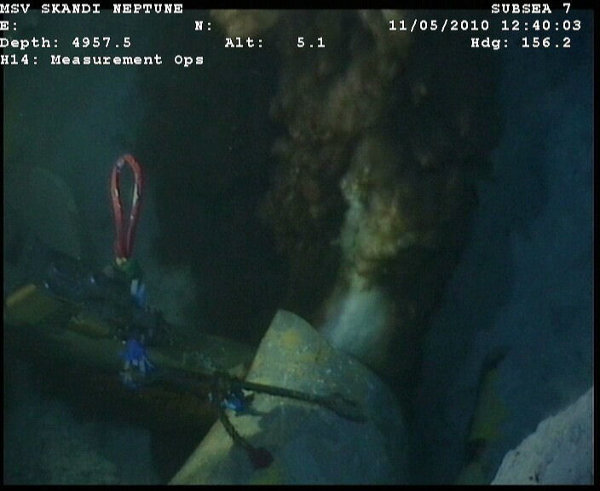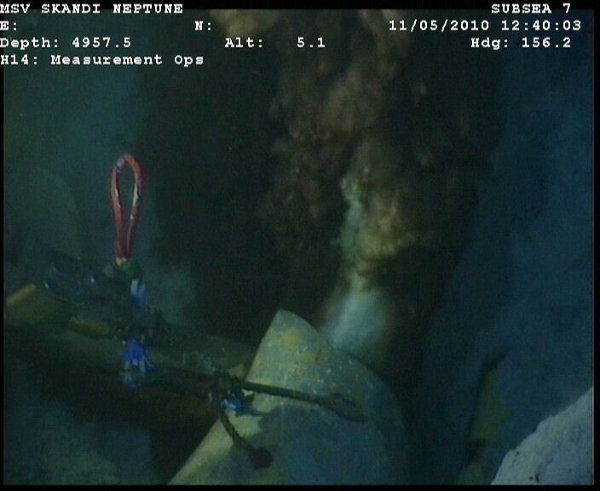BP has been telling the world that only 5,000 barrels of oil are leaking out of its well in the bottom of the Gulf each day, despite the fact that outside experts believe the correct figure is probably more like 95,000 barrels. BP also says that the pipe inserted into the well to siphon oil to the surface is drawing about a fifth of the oil. As of their last announcement, that was about 1,000 barrels of oil per day.
But now BP says that actually it’s siphoning 5,000 barrels per day—in other words, the total amount of oil the company says is spilling into the sea. But the live-feed of the spill site that was made available today clearly shows a whole lot of oil leaking into the Gulf.
So does that mean BP is acknowledging that the spill rate is much, much higher? Are they admitting that they’ve been lying to us for the past month about how bad the spill actually is? Or is BP just bad at math?















